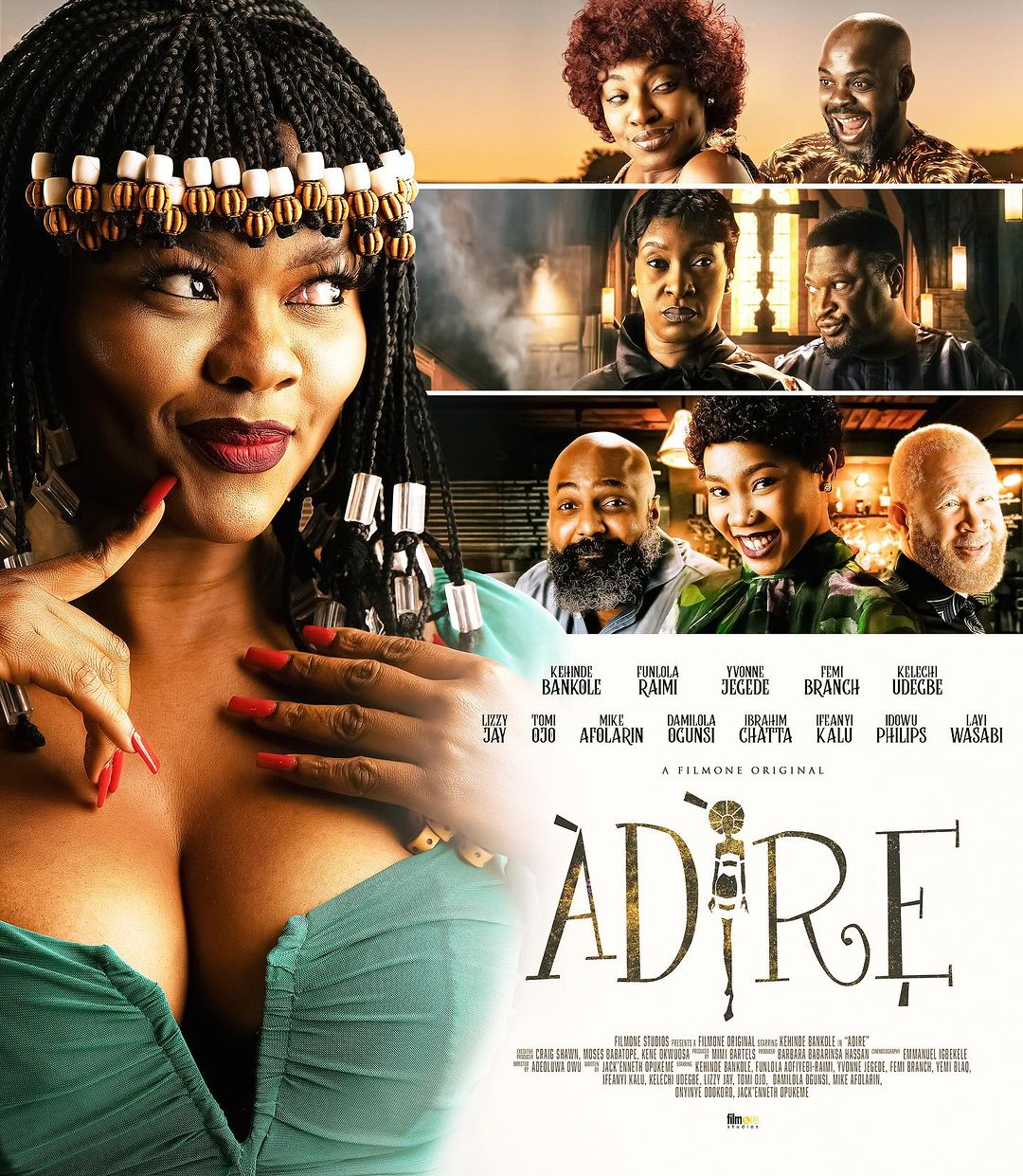Adire, the latest cinematic offering from the team of Barbara Babarinsa, Adeoluwa Owu, and Stephen Oluboyo, graced the silver screen on November 3rd, and it was a delightful fusion of entertainment and enlightenment.
Yet, like any gripping narrative, there were moments that left us pondering, but we’ll delve into those shortly.

The film boasts a star-studded ensemble, featuring A-list actors such as Kehinde Bankole, Yvonne Jegede, Kelechi Udegbe, Yemi Blaq, Ibrahim Chatta, Jack’enette Opukeme, Funlola Aofiyebi-Raimi, Femi Branch, Ifeanyi Kalu, Lizzy Jay, Layi Wasabi, Damilola Ogunsi, Onyinye Nnenna Odokoro, Mike Afolarin, Iya Rainbow, and Tomi Ojo, among other talented individuals.
Adire weaves a compelling tale of a retired prostitute seeking refuge in a quaint town, where she embarks on a lingerie-making venture using her signature adire fabric, inadvertently empowering the conservative women of the community.
This newfound empowerment sparks tension with Folasade, the self-righteous deaconess and wife of the local preacher. As the story unfolds, it reveals unexpected friendships and love in the most unlikely places, only to be disrupted by the return of Captain, Adire’s former pimp, whose stolen money funded her fresh start.
The characters excel in their respective roles, providing a blend of laughter and poignant messages. Yvonne Jegede’s portrayal of an illiterate woman striving for more in life and fighting for her marriage was particularly praiseworthy. Lizzy Jay added her trademark humor, while Kehinde Bankole shone in her portrayal of Adire. However, special acclaim is due to Funlola Aofiyebi-Raimi, who embodied Deaconess Folasade, the self-righteous leader of the women.
Adire impresses with its production quality, a well-crafted plot set against the backdrop of Ibadan, and authentic period-appropriate costumes. Yet, it cannot escape the criticism of potentially portraying women in a somewhat one-dimensional light. The film presents a narrative where women, grappling with unfaithful husbands, resort to wearing seductive lingerie to maintain their partners’ fidelity.
While this could be seen as a message advocating for wives to invest effort in their appearances when it comes to marriages, it falls short by not addressing the husbands’ responsibility in the matter, ultimately perpetuating the objectification of women as they have to use their bodies and physical appearance cum seduction to keep their husbands wandering eyes glued to them alone.
The climactic scene involving Captain and his thugs is a plot hole that bewilders us. How Captain managed to assemble his gang and cause chaos in the bar and community, but then after his death in the fire, we neither see nor hear anything from the thugs who caused problems the previous nights. They seemed to have vanished into thin air upon his death.
Regrettably, the third act of the film feels rushed, despite a strong build-up. It culminates abruptly, leaving the audience wanting a more satisfying conclusion. Adire’s transformation from the encounter with Captain to the final scene is inadequately explained as if the editors struggled to compress all the narrative elements into a two-hour timeframe.
On the visual front, Adire boasts impressive cinematography, soft lighting effects, and effective color grading, enhancing the overall viewing experience.
In the end, Adire imparts a crucial message: the importance of looking beyond appearances and refraining from judgment, as demonstrated by Deaconess Folasade’s character who judged the former prostitute but then ended up with issues on her own.
From us at Kemi Filani, it’s 7.5/10 for Adire.







